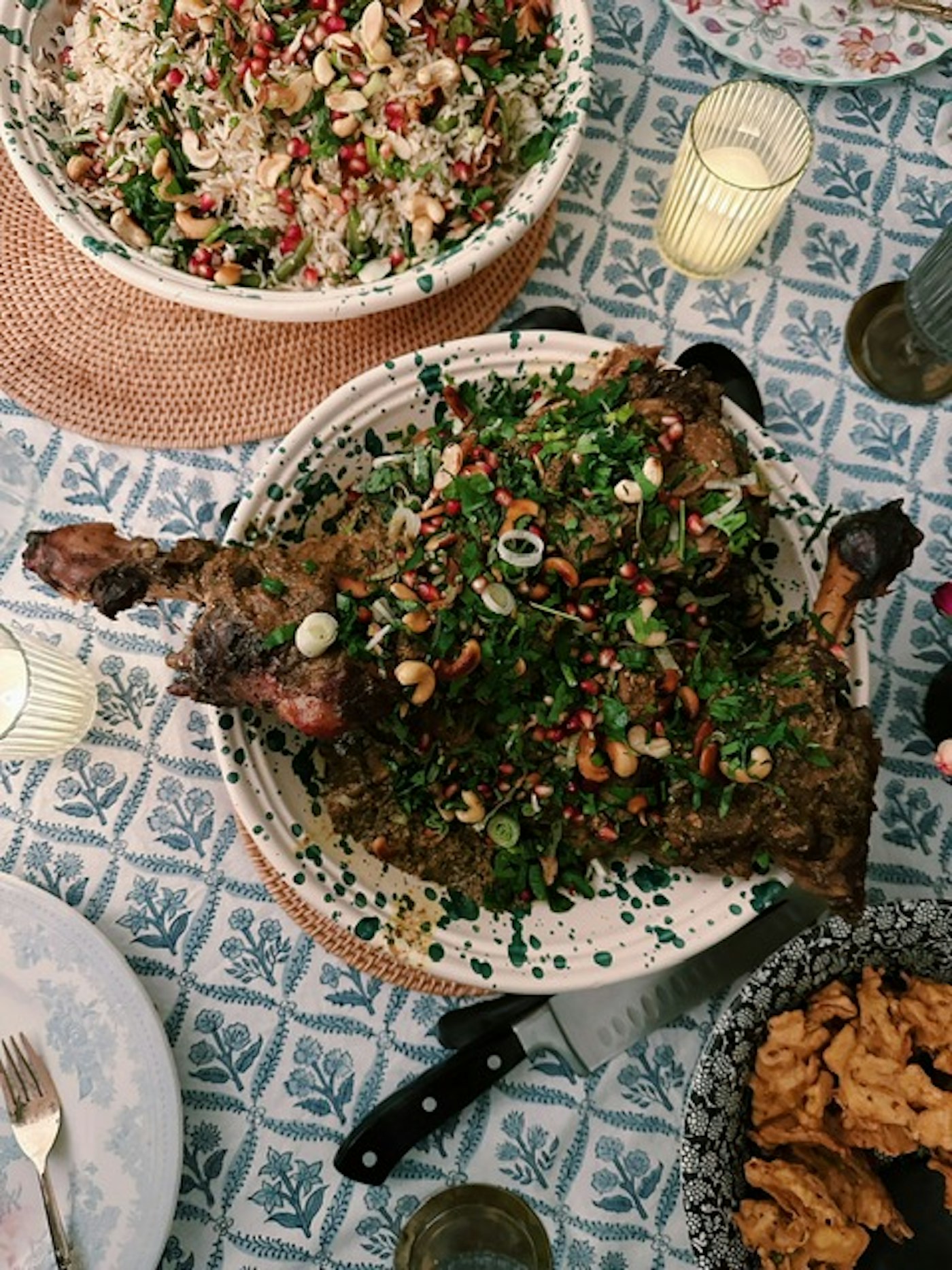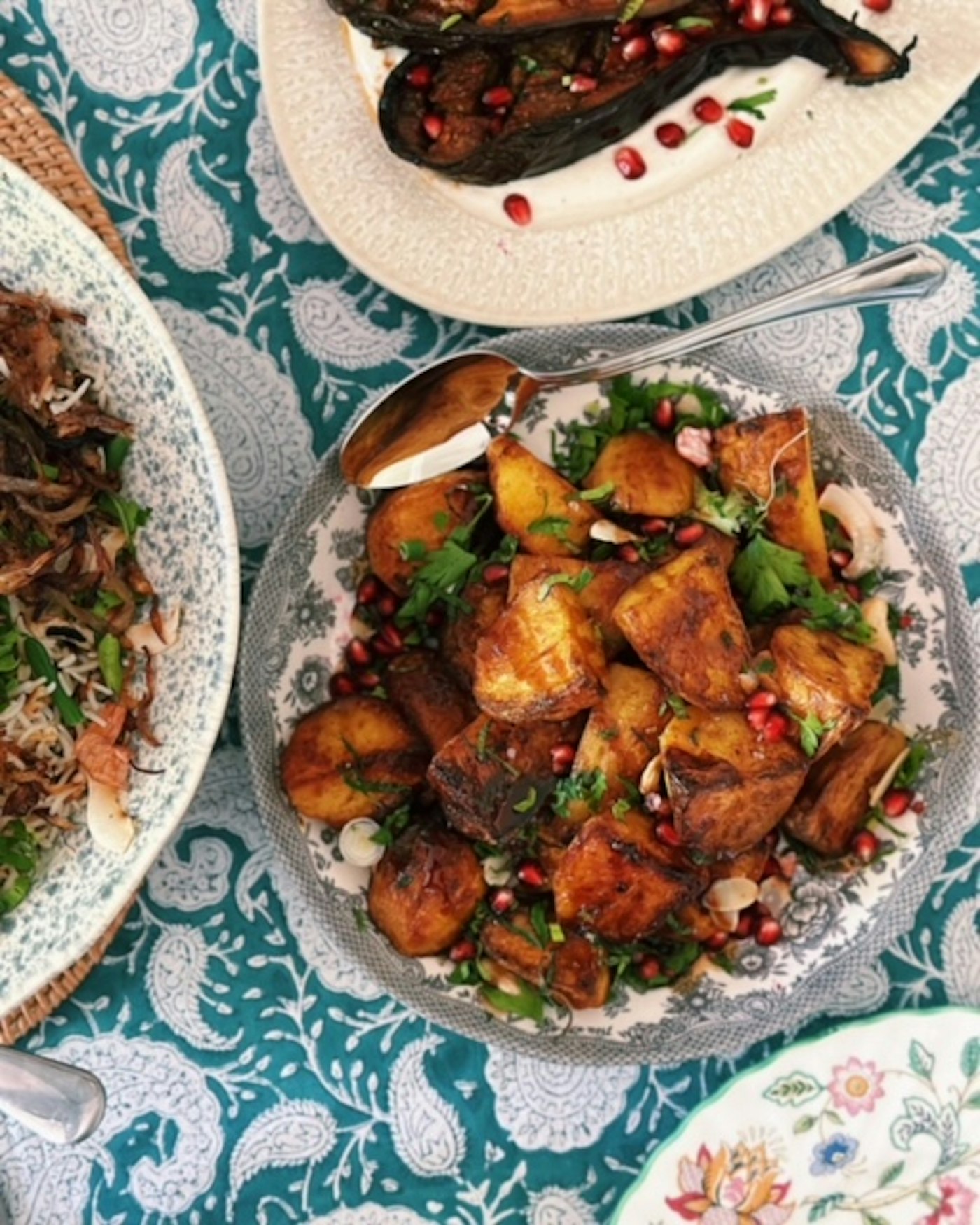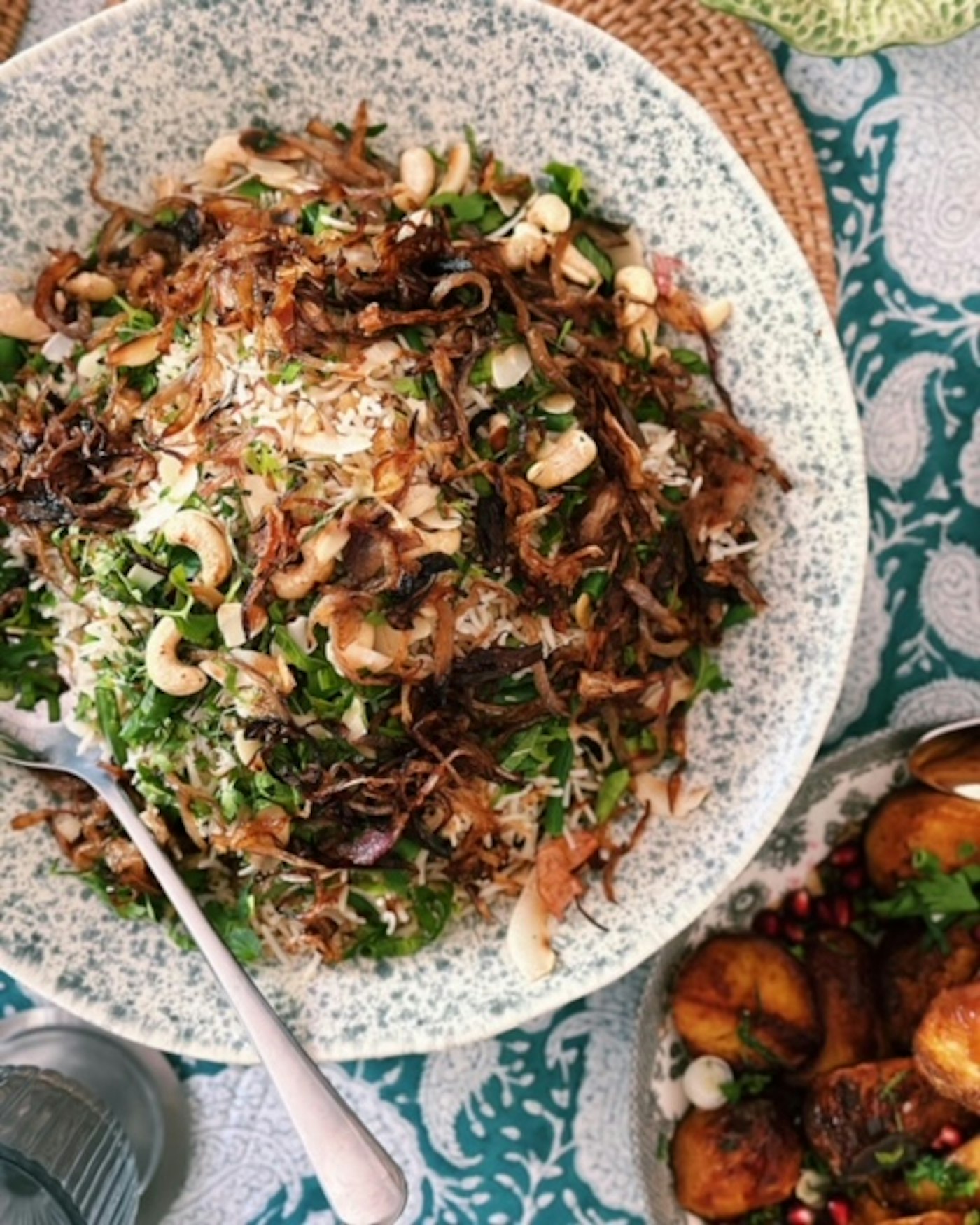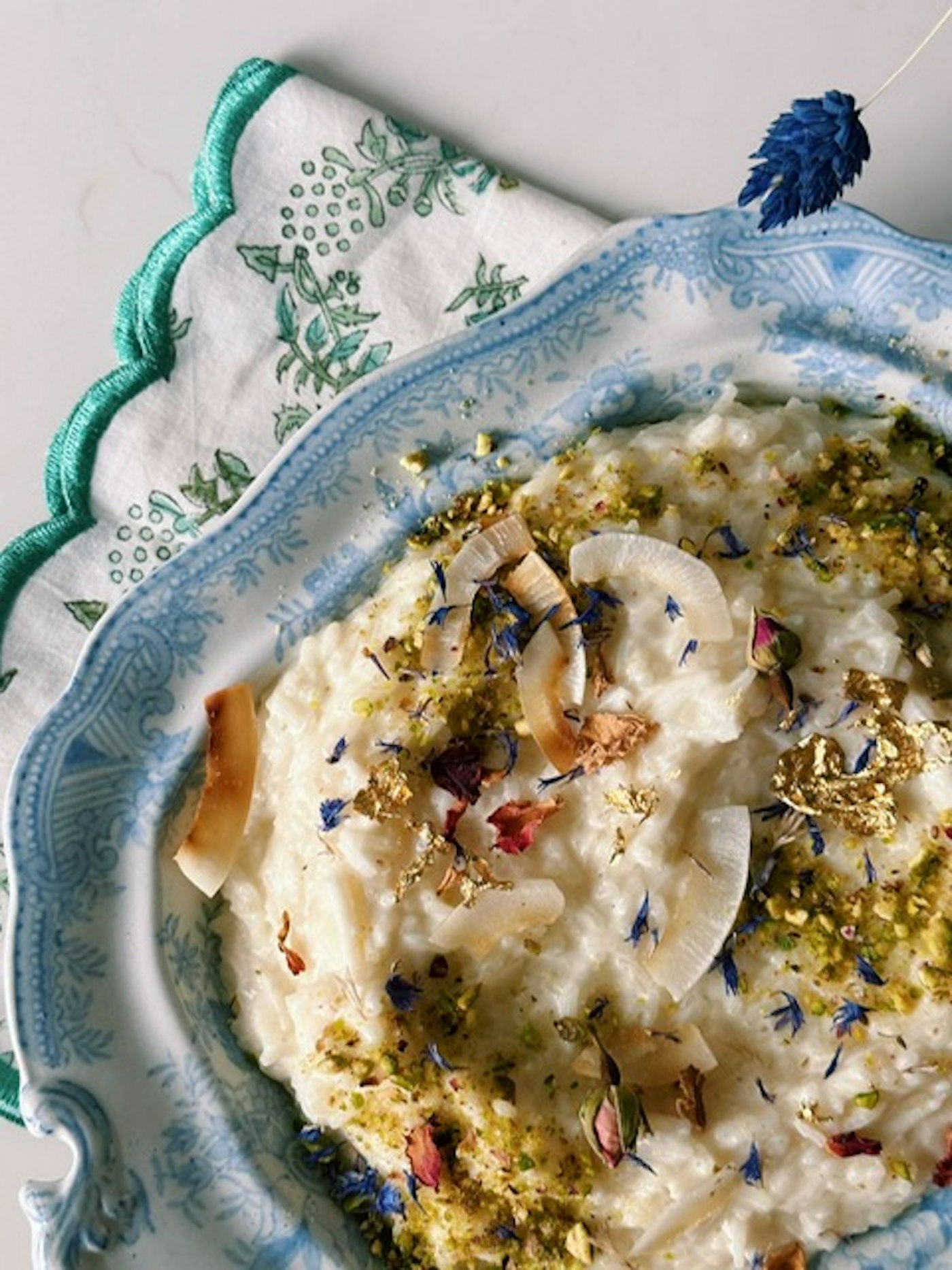
The adhan is called to announce Maghrib, dusk descends and friends and family gather around your table adorned with candles and flowers. It’s a memory that replays every year and one that is hard to top as my favourite. Yet, nothing seems to daunt us like the thought of hosting an iftar for the first time! The endless cooking while being unable to taste, the feeling of the clock being against you and the pressure that this will be your guests’ most anticipated meal of the day, is enough to break the most seasoned cook into a cold sweat. Even with all these kitchen nightmares, every Ramadan creates a new wave of regular guests who transform into experienced entertainers.
During Ramadan, millions of Muslims in the UK will break their fast at exactly the same time and one thing is for certain: they’re going to be hungry! Whether you’re the ‘eat first-pray next’ kind of household, or hurry away to salah after a date and water, it is essential that you are prepared for any eventuality. Years of watching my family host, and now hosting my own means I’ve learned how to make the whole affair more manageable and dare I say – enjoyable!
Here are 7 of the most helpful tips to host a panic-proof iftar:
Make space
Before even getting to the menu, it’s time to assess your fridge, pantry and hosting space. The fridge is prime real estate so you want to consider if something needs to be kept cool, so that there is space amongst everything else. The same goes for the pantry: keep your recipe ingredients at the front of your shelves ready for use. With regards to your hosting space, depending on the number of guests and your seating arrangements, you will have to consider how you may cater. Even with a ten seat dining table, my family still resort to eating on the living room floor with a tablecloth spread. If you really want everyone in one room, it’s time to drag the spare benches and office chairs down!
Once you host one iftar, it quickly becomes a regular habit and while lots of hosts opt for plastic plates and cups, I’d suggest at the very least, using melamine plates that are environmentally friendly, provide value for money as you can use them again and feel more substantial. Don’t forget to make space on your table for a small empty bowl nearby your dates for people to discard their date pits.
Plan a menu
This is my favourite part. When someone takes the time out to think about the dishes you’ll enjoy together, iftar tastes all that much nicer. I’ve found that it’s often helpful to tell people what they’re eating ahead of the meal (a novel concept in Bengali households!) so that I can accommodate dietary requirements, but also so that generous guests know what treats to bring that might complement all the other flavours. Planning a menu also helps you stick to a budget and understand beforehand what steps you can schedule the day before and what steps need to be done on the day of.

A tried and tested iftar menu for around 15 friends has looked like this:
- Tamarind and pomegranate braised lamb (shoulder or leg, preferably)
- Caramelised aubergines
- Red cabbage ‘slaw’
- Shingara chaat
- Turmeric and jeera roast potatoes
- Green bean pulao
- Mango and malai mess
- Chai
For my family gatherings, I make lamb biryani the centre stage. When I have time, I prefer to use the traditional Bangladeshi method of kacchi (cooking meat and rice in one pot at the same time), but pre making your lamb masala and adding to parboiled rice works just fine. If all you do is pair it with a simple raita and salad, it will still be an instant hit. If the thought of planning an entire menu on your own seems overwhelming – delegate! A good host would specify what to bring if it is a potluck situation. To ensure everything goes well together, you could choose a favourite cookbook or cuisine and send them recipes.
Have a separate drinks station
Beverages at iftar are often overlooked but also serve as an essential part of a balanced meal. I’ve always worked our way up to caffeinated drinks, serving water on the table, keeping soft drinks to the side and offering tea after prayers with dessert. This helps with hydration as people can opt out for whichever they prefer. If your space permits, you could also set up a drinks station beforehand with cold water, juices as well as hot boiled water in a thermos, tea bags, sugar and milk on the side along with cups.
Consider the requirements of a balanced meal

While planning an iftar, it is paramount to consider the nutritional aspect of the meal more than any other occasion. While this may be controversial for some hosts, iftar is not the moment I choose to include lots of fried snacks. Not only does it mean you’re perpetually chained to the fryer all night, it also takes away from the efforts we should be making to nourish our bodies with lots of fibre, protein and an overall balance. This year, I’ll be opting to include more sources of protein such as; marinated chicken, khichuri with a dollop of ghee and frozen fruit blended with yoghurt and honey for a sweet treat.
Have fuss free sides or a fuss free dessert

With time often slipping away after setting the table, breaking your fast and offering prayers, iftar is the perfect opportunity to cut corners. There’s no denying that the mains will be the most important to get right, which means I’m more than happy to hold up my hands and call a meringue topped with mangoes and cream a dessert! Desserts you can make ahead like cold kheer or a Basque cheesecake are also perfect for a post-iftar sweet treat. Of course, lessening the workload for one course means you’ll also be able to spend more time with your guests.
It’s better to underseason than over
It’s every host’s nightmare that all the dishes are accounted for but you can’t remember how much salt you put in the khichuri or how much sugar in the kheer. If you feel nervous that you’re unable to taste, I’d go with underseasoning and offering tabletop garnishes. Little pinch pots of salt, chopped chilies, fried onions will mask your mishap and also allow guests to adjust the intensity of their dish to their liking. Besides, it’s easier to add flavour later than it is to take away.
Be easy on yourself
Whether you’re hosting two people or twenty this Ramadan, this piece of advice might be the most crucial: iftar is a meal that is a lesson in grace and humility, and there is no better time to extend that same kindness to yourself if you’re cooking while fasting. When all that is said and done, one thing is for certain: once you’ve honed the skill of hosting iftars, throwing a feast at any other time of the year will feel like a walk in the park!
Thahmina Haseen
Thahmina is a Bengali food writer, tablescape enthusiast and lover of all things food-related. Her blog ‘Golden Tiffin’ was started in 2014 as a way to combiner her passion for feeding the masses and food photography.